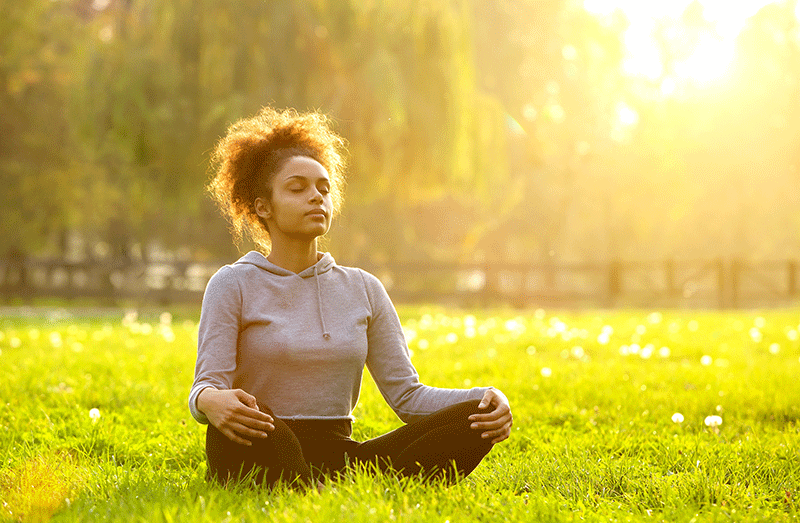Introduction: Defining Mental Clarity and Its Importance for a Balanced Life
Mental clarity is the state of having a focused and organized mind, free from distractions and cluttered thoughts. It’s essential for making better decisions, improving productivity, and fostering emotional stability. Achieving mental clarity plays a crucial role in creating a healthy balance between personal and professional life. Without it, stress and confusion can take over, leading to burnout. By emphasizing practices like mindfulness and relaxation, one can take meaningful steps toward achieving this clarity and enhancing overall well-being.
Understanding Mindfulness
Mindfulness is about being fully present in the moment. It’s a conscious effort to observe your thoughts, feelings, and surroundings without judgment. This practice allows you to gain deeper awareness of your emotions and behaviors, helping you respond to situations calmly. Research supports the benefits of mindfulness, showing it can reduce anxiety, enhance focus, and improve relationships. By bringing attention to the present moment, mindfulness serves as a powerful tool to develop mental clarity.
Practicing Mindfulness
Mindfulness isn’t an abstract concept; it’s something you can practice every day in small ways. Activities like mindful breathing, body scans, and mindful eating are simple exercises that can seamlessly fit into a busy schedule. For example, mindful breathing involves focusing on each inhale and exhale, which can help ground you during stressful moments. These practices require patience and consistency, but even a few minutes of mindful activity each day can lead to noticeable improvements in clarity and mental focus.
Relaxation Techniques
Relaxation techniques provide a much-needed pause for the mind and body, alleviating stress and creating space for mental clarity. Popular methods such as meditation, deep breathing, yoga, or progressive muscle relaxation encourage your body to release tension and help reset your mind. Meditation, in particular, has been shown to quiet intrusive thoughts, while deep breathing lowers cortisol levels and promotes a sense of calm. Experimenting with different techniques allows you to discover which ones resonate most effectively with your personal needs.
Benefits of Relaxation
The advantages of relaxation go far beyond reducing stress—there are measurable benefits for both physical and mental health. Studies reveal that regular relaxation can decrease blood pressure, strengthen immunity, and improve digestion. On a mental level, it boosts mood, enhances creativity, and fosters better problem-solving abilities. By prioritizing relaxation as a regular part of your routine, you’ll quickly notice how these benefits contribute to overall mental clarity and a sense of balance.
Example Chart Highlighting Key Benefits of Mindfulness and Relaxation
|
Benefits |
Mindfulness |
Relaxation Techniques |
|---|---|---|
|
Reduces Stress |
✓ |
✓ |
|
Enhances Focus |
✓ |
|
|
Improves Sleep Quality |
✓ |
|
|
Boosts Emotional Stability |
✓ |
✓ |
|
Lowers Blood Pressure |
✓ |
Creating a Balanced Life
Achieving a balanced life is about integrating mindfulness and relaxation into your daily routine in a way that feels sustainable. Balance isn’t about strict time management—it’s about aligning your actions with your values. Carving out time for these practices (even if it’s just 10 minutes a day) creates a ripple effect, improving relationships, work satisfaction, and emotional health. Over time, you’ll develop a foundation that enables you to remain calm and clear-headed no matter what challenges come your way.
Tools and Resources
There are countless tools available to help you on your mindfulness and relaxation journey. Mobile apps like Headspace, Calm, and Insight Timer offer guided sessions, meditations, and mindful exercises tailored to different needs. Books such as The Miracle of Mindfulness by Thich Nhat Hanh or The Power of Now by Eckhart Tolle provide deeper insights into these practices. Exploring these resources will equip you with knowledge and techniques to maintain mental clarity consistently.
Challenges and Solutions
Like any worthwhile endeavor, developing mindfulness and relaxation habits comes with its own set of challenges. People often struggle with consistency, distractions, or unrealistic expectations. One common issue is feeling like there’s “not enough time.” The solution? Start small. Even five minutes a day of mindfulness practice can create noticeable differences. Another challenge might be self-doubt or impatience with progress—this is where perseverance and compassion toward oneself become crucial.
Real-Life Examples
Consider Emma, a project manager who struggled with constant stress and overwhelming deadlines. By practicing five-minute breathing exercises and attending weekly yoga classes, she found a way to center herself and approach her tasks with newfound clarity. Another example is Marcus, a graduate student, who embraced mindfulness sessions through an app to combat academic pressure. These practices not only improved his focus but also boosted his confidence in managing complex assignments.
The Ongoing Journey to Clarity and Balance
Cultivating mental clarity through mindfulness and relaxation is a lifelong practice, not a one-time solution. By making these practices a regular part of your routine, you’re investing in your well-being and setting the foundation for a balanced and fulfilling life. Whether you’re just starting to explore mindfulness or are looking to deepen your relaxation techniques, remember that progress is personal and gradual.
FAQ
What is the best time of day to practice mindfulness?
The best time is what works for you! Many find mornings effective for setting intentions, while others prefer evenings to reflect and unwind.
How long does it take to see results?
Consistency is key. Most people notice changes in focus and mood within a week, but long-term benefits come with sustained practice.
Can mindfulness replace professional mental health support?
No, mindfulness complements professional help but doesn’t replace it. For serious mental health concerns, consulting with a licensed therapist is essential.
What if I can’t quiet my mind?
It’s normal! Mindfulness isn’t about stopping thoughts but observing them without judgment. Over time, this practice becomes easier.
guiadenoivos.saojosedojardimeuropa.com.br
beyond.globalpranichealing.com
ejournal.akbidbungabangsaaceh.ac.id
sekolah tinggi ilmu kesehatan ukpm
kebidanan mitra sejahtera jakarta
akademi analis kesehatan muhammadiyah surabaya
akademi kesehatan lingkungan sumsel
akademi kebidanan arta kabanjahe
akademi kebidanan nusantara medan
akademi kebidanan delhus delmed
akper harapan mama deli serdang
akademi kebidanan bunga bangsa aceh




